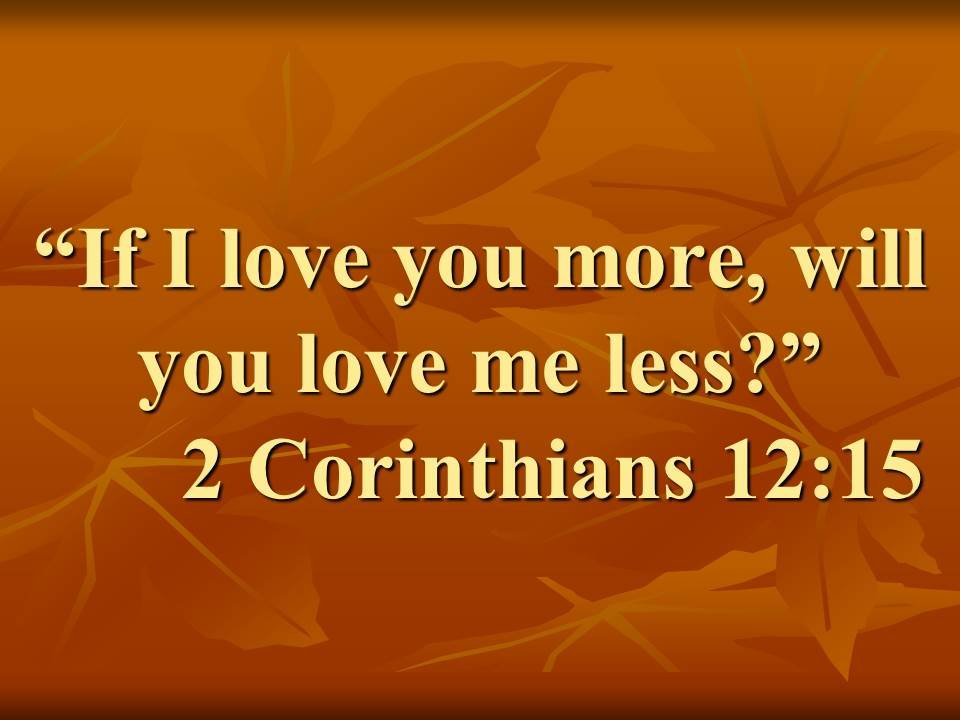Paul and the christian logic: If I love you more, will you love me less? 2 Corinthians 12:15
0 comments
The apostle Paul founded the Church of Corinth during his second missionary journey and visited it for the second time on his last missionary journey. Due to its importance as a port and cosmopolitan city, it was one of the most important cities evangelized by Paul, and it was there and in Athens where the confluence with the Greek world and its philosophical wisdom took place most intensely. This Christian community was initially greatly affected by heresies and the apostle dedicated two spiritual letters to them for the formation of the community, Paul's letters to the Church at Corinth were probably written after his third missionary journey.
And in this Letter, the second, Paul exposed in his theology the logic of Christian love, a love that is neither selfish nor possessive, but rather extends mercifully toward the other, the neighbor. It must be understood in this spiritual context that the true love for the apostle Paul, as he taught in his first letter, is the love free of human imperfections, that is, the love without passion, the love free of guilt, hate, envy, pride, and shame, and so with these wise words he taught in his first letter: "Love never gives up, never loses faith, is always hopeful, and endures through every circumstance" 1 Corinthians 13:7.
This is why Paul, at the end of his second letter and with the intention of visiting a third time the community that he founded with great sacrifice, declared his love for Christ to ratify his authority as an apostle with these words: "I will very gladly spend for you everything I have and expend myself as well. If I love you more, will you love me less?" 2 Corinthians 12:15. The love of Jesus forgives everything and is always willing to do good, taught the apostle during his travels to the pagan world. Paul could not visit a third Corinth as he wished, but with his preaching, he laid the foundations for a simple sect from the East to become the largest world religion in history.

For more information visit my profile follow the link and download for free my ebook.
Comments